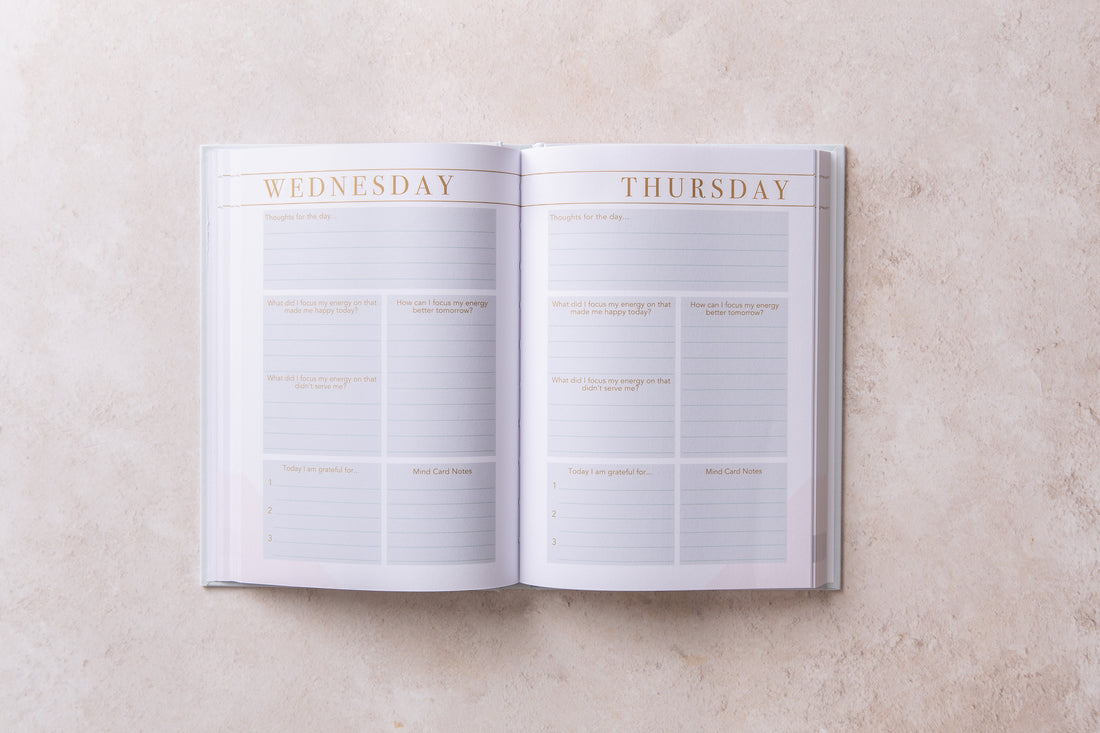How Can Journaling Help Alleviate My Anxiety : In today's world, anxiety has become a common condition that affects many people. Anxiety is a feeling of worry, nervousness, or unease about something with an uncertain outcome.
Anxiety can be a normal and healthy emotion, but when it becomes excessive, it can interfere with daily activities and affect mental health. Anxiety can lead to stress, depression, and other mental health problems. Are you ready to dive into How Can Journaling Help Alleviate My Anxiety?
While there are various treatments available, some people prefer to take a more natural and personalized approach to managing their anxiety. Journaling is a simple yet effective practice that has been known to help alleviate anxiety by giving individuals an outlet to express their thoughts and emotions in a safe and non-judgmental way.
Understanding anxiety and its impact on mental health
Anxiety is a normal response to stress, but when it becomes excessive, it can interfere with daily activities and affect mental health. Anxiety disorders are the most common mental health disorders in the United States, affecting 40 million adults. Anxiety disorders are highly treatable, but only one-third of those affected receive treatment. Anxiety can affect people of all ages, genders, and backgrounds. The causes of anxiety are complex and can include genetic, environmental, and psychological factors.
Anxiety can manifest in various ways, including physical symptoms such as sweating, trembling, and a rapid heartbeat. Anxiety can also lead to negative thoughts and feelings, including worry, fear, and self-doubt. These thoughts and feelings can interfere with daily activities and cause individuals to avoid certain situations or activities. Over time, anxiety can lead to stress, depression, and other mental health problems.
How Can journaling Help alleviate my anxiety?
Journaling is a simple yet effective practice that can help alleviate anxiety by giving individuals an outlet to express their thoughts and emotions in a safe and non-judgmental way. Writing down thoughts and feelings can help individuals process their emotions and gain a new perspective on their problems. Journaling can also help individuals identify patterns in their thoughts and behaviors and develop new coping strategies.
There are various types of journaling techniques that can be used to alleviate anxiety, including free writing, bullet journaling, and gratitude journaling. Free writing involves writing continuously for a set period of time without worrying about grammar, spelling, or punctuation. Bullet journaling involves using bullet points to organize thoughts and tasks. Gratitude journaling involves writing down things that individuals are grateful for each day.
Different types of journaling techniques
There are various types of journaling techniques that can be used to alleviate anxiety. One of the most popular techniques is free writing. Free writing involves writing continuously for a set period of time without worrying about grammar, spelling, or punctuation. This technique can be used to express emotions, process problems, and gain a new perspective on life. Free writing can be done at any time of day, and the length of each session can vary from a few minutes to an hour or more.
Bullet journaling is another popular technique that can be used to alleviate anxiety. Bullet journaling involves using bullet points to organize thoughts and tasks. This technique is popular among individuals who like to stay organized and productive. Bullet journaling can be used to set goals, track progress, and plan for the future. This technique can be customized to fit the individual's needs and preferences.
Gratitude journaling is a technique that involves writing down things that individuals are grateful for each day. This technique can help individuals focus on the positive aspects of their lives and cultivate a sense of gratitude. Gratitude journaling can be done at any time of day, and the length of each session can vary from a few minutes to an hour or more. This technique can be especially helpful for individuals who struggle with negative thinking and self-doubt.
https://shopedithchloe.com/products/calminggratitudejournal
Tips for effective journaling
Journaling can be a powerful tool for managing anxiety, but it's important to approach this practice in a thoughtful and intentional way. Here are some tips for effective journaling:
- Set aside time each day for journaling.
- Find a quiet and comfortable place to write.
- Write without judgment or self-censorship.
- Write about your thoughts and feelings honestly and openly.
- Experiment with different journaling techniques to find what works best for you.
- Don't worry about grammar, spelling, or punctuation.
- Use journal prompts to guide your writing if needed.
- Be consistent with your journaling practice.
Journal prompts for anxiety relief
Journal prompts can be a helpful tool for individuals who are new to journaling or who are struggling to get started. Here are some journal prompts that can be used to alleviate anxiety:
- What am I feeling right now, and why?
- What are my biggest fears, and how can I overcome them?
- What are some things that make me feel happy and fulfilled?
- What are some things that I'm grateful for in my life?
- What are some things that I can do to take care of myself and manage my anxiety?
- What are some things that I'm proud of in my life?
- What are some things that I can do to improve my mental health and well-being?
- What are some things that I'm looking forward to in the future?
https://shopedithchloe.com/products/anxiety-journal
The connection between mindfulness and journaling
Mindfulness is a practice that involves being present and fully engaged in the present moment. Mindfulness can help individuals reduce stress, anxiety, and depression. Journaling can be a helpful tool for practicing mindfulness because it encourages individuals to focus on their thoughts and feelings in the present moment.
To practice mindfulness journaling, individuals can start by taking a few deep breaths and focusing their attention on their breath. Then, they can begin to write down their thoughts and feelings without judgment or self-censorship. They can focus on the physical sensations of writing, such as the feel of the pen on paper or the sound of the pen scratching against the paper. By staying fully engaged in the present moment, individuals can practice mindfulness and alleviate anxiety.
Journaling as a part of self-care routine
Self-care is a practice that involves taking care of one's physical, mental, and emotional well-being. Journaling can be a helpful tool for self-care because it provides individuals with a safe and non-judgmental way to express their thoughts and feelings. Journaling can also help individuals identify patterns in their thoughts and behaviors and develop new coping strategies.
To incorporate journaling into a self-care routine, individuals can set aside time each day to write about their thoughts and feelings. They can also experiment with different journaling techniques to find what works best for them. By making journaling a regular part of their self-care routine, individuals can improve their mental health and well-being.
The power of gratitude journaling
Gratitude journaling is a technique that involves writing down things that individuals are grateful for each day. This technique can help individuals focus on the positive aspects of their lives and cultivate a sense of gratitude. Gratitude journaling can also help individuals develop a more positive outlook on life and improve their mental health and well-being.
To practice gratitude journaling, individuals can start by writing down three things that they are grateful for each day. These things can be big or small, and they can be anything that brings joy and happiness into their lives. By focusing on the positive aspects of their lives, individuals can cultivate a sense of gratitude and improve their mental health and well-being.
Conclusion
Journaling is a simple yet effective practice that can help individuals manage their anxiety and improve their mental health and well-being. By providing a safe and non-judgmental way to express thoughts and feelings, journaling can help individuals gain a new perspective on their problems and develop new coping strategies. Whether through free writing, bullet journaling, or gratitude journaling, there are various techniques that individuals can use to harness the power of pen and paper to alleviate anxiety and improve their lives. If you're looking for a way to take control of your anxiety and unleash your inner strength and resilience, give journaling a try
I hand-pick guided journals for the shop, I believe the prompts and work available in each one will be helpful to you.
Check out our selection of guided journals here: https://shopedithchloe.com/collections/guided-journals

